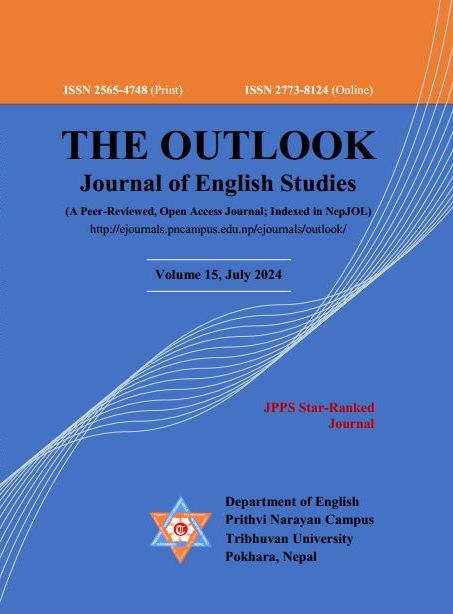Reconstructing the Identity of African-Americans in Countee Cullen’s “Heritage”: Why Race Matters in America
DOI:
https://doi.org/10.3126/ojes.v15i1.67760Keywords:
Skin color, genealogical identity, image, social relegationAbstract
The present paper argues that it is the color of the Africans that is an object of mockery and humiliation hurled at them by the whites. To escape from this color-induced discrimination and identity crisis, yearning for the ancestor’s native heritage is the sole sanctuary for the American people of color. This paper examines the subtle use of the symbols of dark images to show how Countee Cullen, in his poem “Heritage,” shows black people's identity crisis based on color. The dark color symbolizes a constraint on civilization and creates a distinct bifurcation between synchronization and harmony in the nation. Hence, the recurring dark color in the poem leads the minority group to quest for identity through social strengthening. The poet calls for African Americans' personal, social, and geographical identity based on hereditary identity. In the context of America, the question of true identity in the new nation leads black people to feel a deep anguish of estrangement and alienation. Drawing on Cullen’s poem as the primary source for analysis, this paper applies Richard Delgado and Jean Stefancis, Winthrop D. Jordon, Michael Banton, and Lois Tyson’s racial theory and search for identity for textual analysis. Racial discrimination creates gloom and generates inferiority among individuals. The minority group seeks identity establishment for social inclusion. Therefore, this study concludes that national coherence in American society invariably rests upon minimizing gloom, distancing, and uneasiness.
Downloads
Downloads
Published
How to Cite
Issue
Section
License

This work is licensed under a Creative Commons Attribution-NonCommercial 4.0 International License.
This license enables reusers to distribute, remix, adapt, and build upon the material in any medium or format for noncommercial purposes only, and only so long as attribution is given to the creator.

